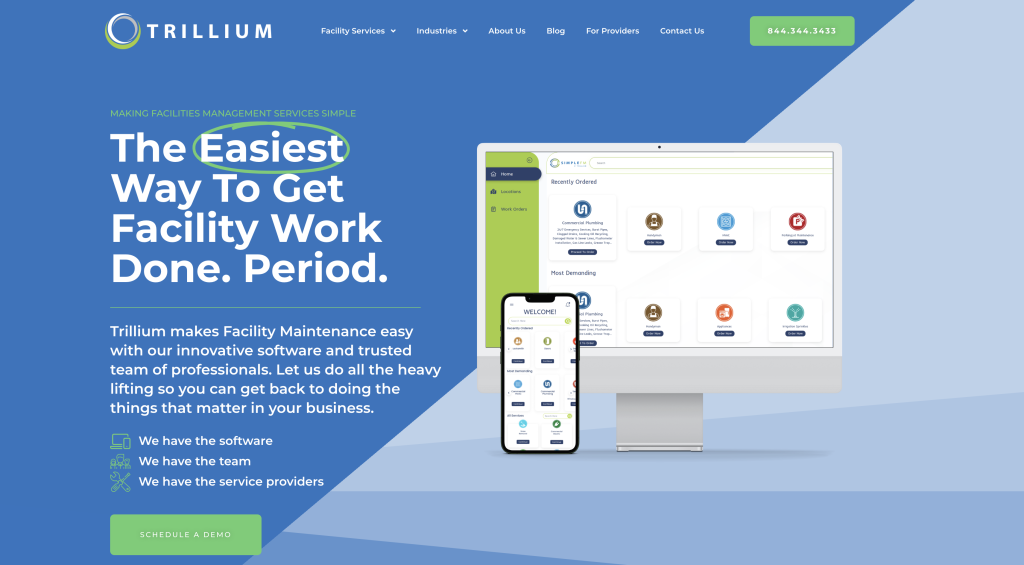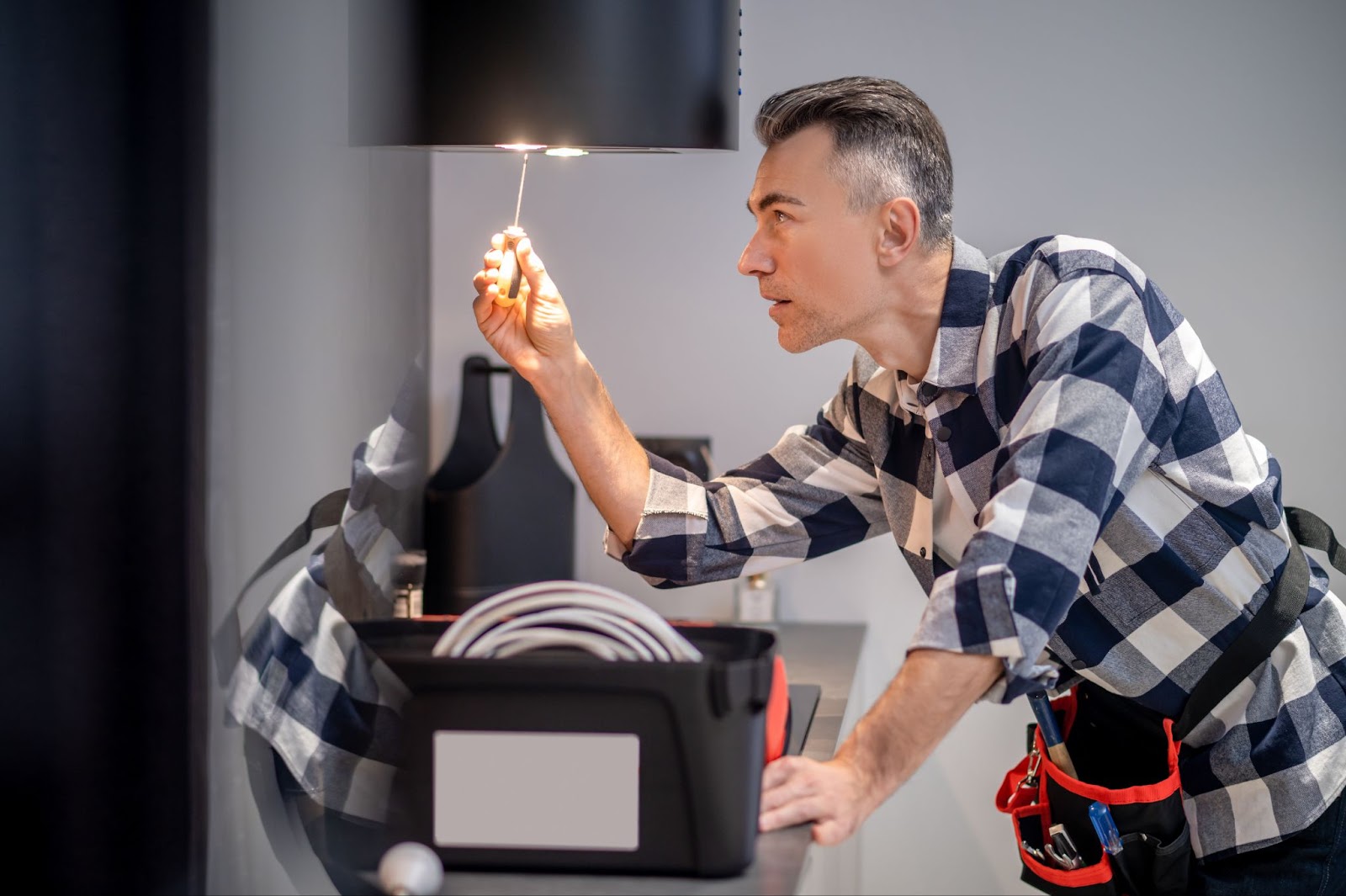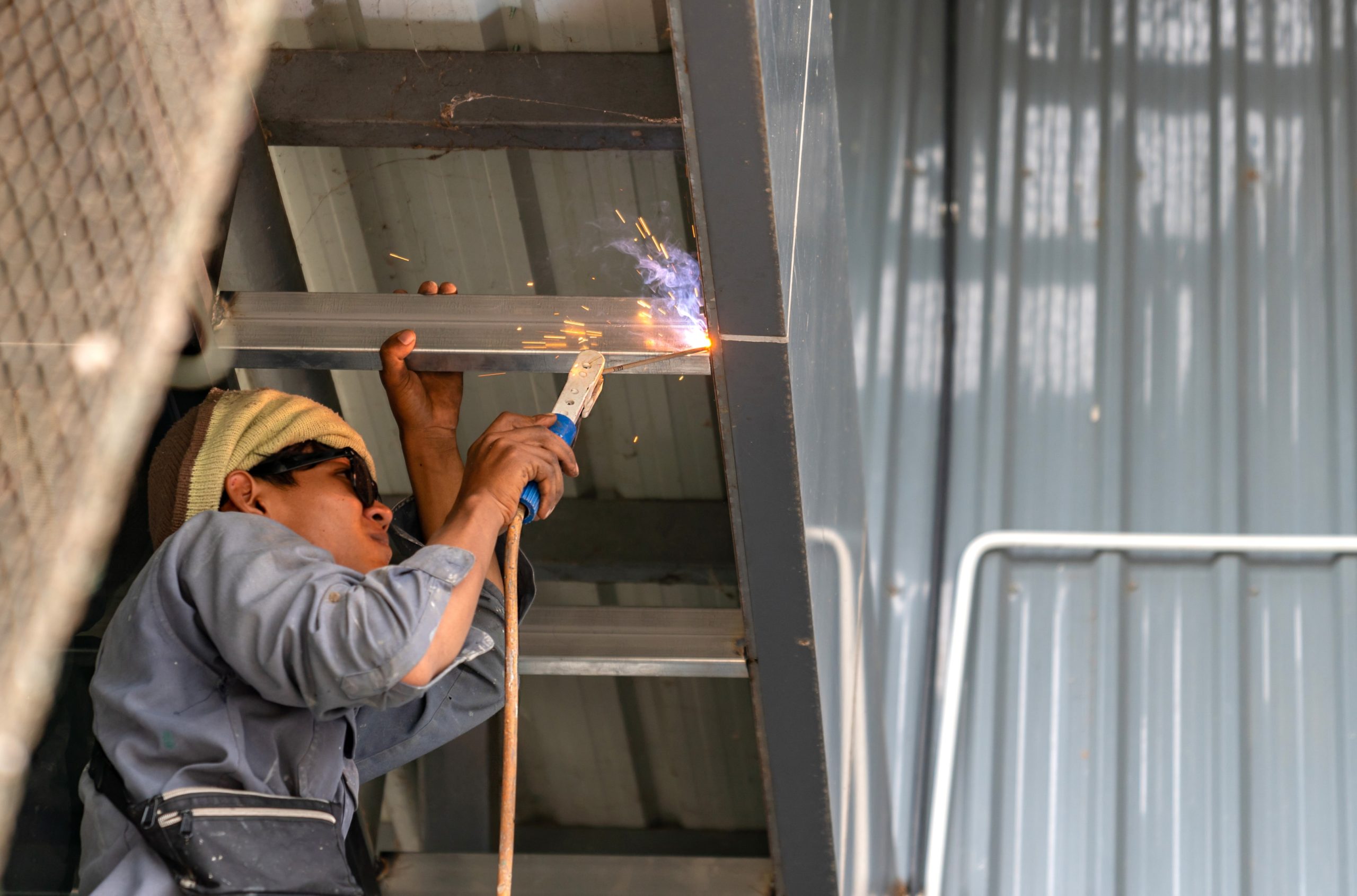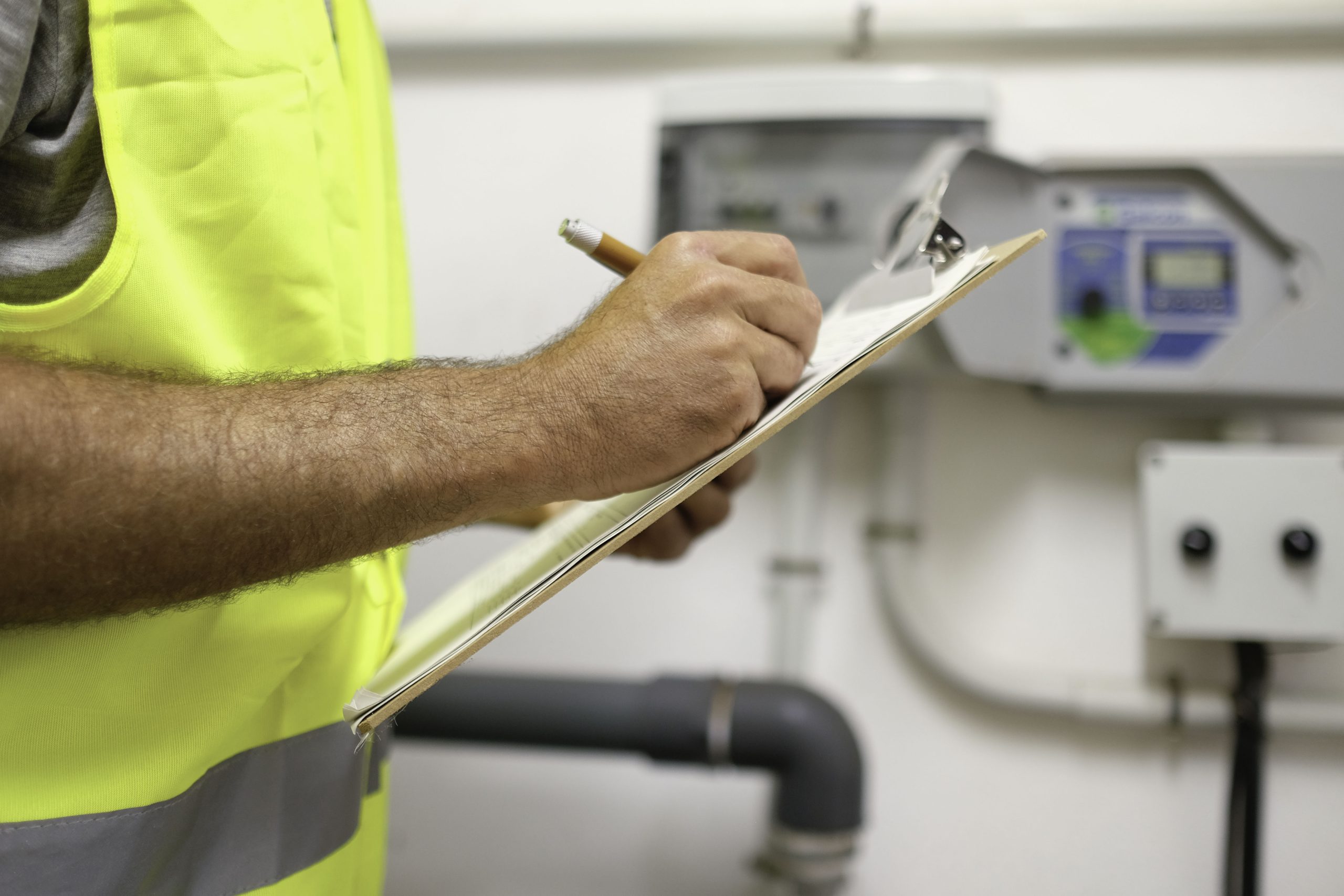Retail doors go through a lot. Customers push, pull, and rush through them all day. Weather wears them down. Hinges loosen, and sensors glitch. One day, everything’s fine. The next, a door won’t close right, the automatic opener hesitates, or the lock sticks at the worst possible time.
If you’ve ever had to wrestle with a stubborn door or listen to an employee complain about one that won’t latch, you know how frustrating it is.
Most door problems don’t show up overnight. There are warning signs, and with a little upkeep, you can stop small issues from turning into costly repairs.
Let’s go over what causes these problems and how preventative door maintenance in retail stores helps avoid costs.
Common Commercial Door Issues and How to Fix Them
Most door problems have simple fixes if you catch them early. Here are some of the most common ones and what you can do about them.
Loose Hinges and Hardware
Hinges take a beating from constant use. If they loosen up, doors sag, drag, or stop closing properly. Bolts and handles wear down, too, creating security risks and making doors harder to use.
Check hinges and screws regularly. Tighten anything loose before it causes alignment issues. If a hinge looks worn out, swap it for a new one before it throws the whole door off balance.
Malfunctioning Automatic Doors
Automatic doors are great when they work, but when they hesitate, stop mid-motion, or won’t open at all, they become a hassle. Most of the time, the problem comes from dirty sensors, weak batteries, or a track that needs adjusting.
Wipe down the sensors and make sure nothing is blocking them. If the door moves slowly or doesn’t respond, check the power source and test the batteries. If that doesn’t do the trick, it might be time to call in a professional.
Sticking, Warping, or Drafty Doors
Doors that stick or don’t close all the way usually have an alignment issue. Changes in temperature, daily wear, and old weather stripping can all cause gaps or make a door harder to open.
Look for dirt buildup in the tracks or a loose door closer. If the door frame has shifted, adjusting the hinges or sanding the edges should help. If air is coming through, replacing worn-out weather stripping is a quick fix.
How to Keep Retail Doors in Good Shape
A little upkeep keeps doors working and avoids those emergency repairs that always seem to come at the worst time. Maintaining commercial doors takes less time than dealing with major breakdowns.
Here’s what to focus on to avoid door troubles.
Check Doors Regularly
Doors don’t just break out of nowhere. Most issues start small. A hinge gets noisy, a handle feels loose, or a door doesn’t close quite right. Catching these early makes repairs quicker and less expensive.
Take a few seconds each day to check for anything that seems off. If a door sticks, creaks, or has a gap where it shouldn’t, a small fix now can prevent a bigger repair later.
Keep Hinges, Locks, and Tracks Clean
Dust, dirt, and grime wear doors down faster than normal. They clog locks, jam door tracks, and loosen hinges over time.
Wipe down handles, hinges, and locks regularly. If you have sliding doors, keep the tracks free of dirt so they don’t get stuck.
Lubricate Moving Parts
Hinges and locks wear out faster without lubrication. Over time, doors start sticking, making noise, or feeling harder to open and close. Keeping parts lubricated helps ensure smooth door operation and reduces unnecessary wear.
Apply a commercial-grade lubricant to hinges, locks, and sliding tracks every few months. It takes seconds but prevents long-term wear.
Check Door Seals and Weather Stripping
Gaps around doors let in drafts, increase energy costs, and make it harder to regulate indoor temperatures. Energy efficiency is affected when worn-out weather stripping allows air leaks.
If a door has visible gaps or you feel air coming through, replace the weather stripping. It’s a small fix that saves money on energy bills and keeps the store comfortable.
Regular maintenance keeps doors working and prevents unnecessary problems. But even with the best care, some doors eventually need repairs or replacements.
Fix or Replace? How to Know What Your Door Needs
Some door issues are easy to fix. If a door sticks, squeaks, or closes too fast, adjusting the hinges or door closer can usually solve the problem. Loose handles, minor dents, and faulty locks can also be repaired without much trouble. When a door still functions but has minor issues, repairs are usually the better option.
There comes a point when repairs are no longer worth it. A door that constantly needs fixing, has visible cracks, or no longer closes properly is a liability. If it lets in drafts, jams frequently, or poses a security concern, replacing it makes more sense.
Energy loss is another reason to upgrade. Older doors with worn-out seals or gaps can drive up heating and cooling costs. A new, well-insulated door helps maintain indoor temperatures and lowers energy waste.
If repairs are becoming too frequent, replacing the door might be the smarter move. Newer doors last longer, function better, and improve security. When it’s unclear whether to repair or replace, a professional can assess the condition and recommend the best option.
When to Call a Professional for Commercial Door Repair
Tightening screws, lubricating hinges, or replacing weather stripping can keep doors working like they should. But when a door won’t close properly, an automatic door stops responding, or repairs keep piling up, it’s time to bring in a professional.
Automatic Doors That Malfunction
Automatic doors rely on sensors, motors, and electronics that can be tricky to troubleshoot. If a door hesitates, gets stuck, or won’t open at all, cleaning the sensors might help. If that doesn’t work, the issue could be electrical or mechanical, which means it needs expert repair.
Security or Compliance Issues
A faulty lock, a door that doesn’t latch, or a damaged exit door can put security at risk. Retail businesses also have to follow building codes and accessibility regulations, and a malfunctioning door could lead to fines or liability issues. If a door isn’t meeting safety or security standards, it’s time to get it checked by skilled technicians.
Structural Damage or Severe Wear
Cracks, warping, or a door pulling away from its frame are more than just cosmetic issues. If a door has visible damage that affects how it works, a professional can determine if it needs repairs or a full replacement.
Trillium Lets You Manage Door Maintenance From Anywhere, Anytime

Door problems can slow down business, frustrate customers, and lead to expensive repairs. Regular maintenance keeps everything working, but finding the right service provider can be a challenge.
Trillium makes door maintenance simple. With 24/7 service management and expert facility maintenance across 47 states, businesses can request service whenever needed, minimizing downtime during busy hours.
Unlike traditional facilities management, Trillium has no fees, no hidden markups, and no unnecessary on-site personnel. You only pay for the services you need, when you need them.
Trillium’s facility maintenance software makes submitting and managing work orders fast and easy. You can track requests in real time, schedule services without long waits, and avoid being locked into expensive contracts. There are no minimum order volumes, no commitments, and no extra costs.
When the door operates smoothly, it creates a better experience for employees and shoppers. Well-maintained commercial doors improve customer satisfaction, enhance security, and prevent unnecessary disruptions.
Try Trillium’s cost-saving solution and experience a better way to manage commercial door maintenance.
FAQs About Door Maintenance in Retail
How do you do door maintenance?
Check doors regularly for loose hinges, misalignment, or worn-out seals. Keep tracks and locks clean, lubricate moving parts, and replace weather stripping if drafts appear. Address small issues early to prevent bigger repairs.
What does maintenance mean in retail?
In retail, maintenance refers to the upkeep of store fixtures, equipment, and essential systems to keep operations running without disruptions. This includes everything from cleaning and repairing doors to servicing HVAC systems, plumbing, and lighting.
Do automatic doors need to be serviced?
Yes, automatic doors need regular servicing to keep the sensors, motors, and tracks working properly. Dust, dirt, and misalignment can cause them to malfunction, so routine inspections and cleaning help prevent breakdowns.
What is routine maintenance on a garage door?
Routine garage door maintenance includes inspecting the tracks, rollers, and springs for wear, lubricating hinges and moving parts, and testing the door opener for smooth operation. Checking the balance of the door by manually lifting it halfway and ensuring it stays in place is another important step. If the door is uneven, makes grinding noises, or struggles to open, it may need adjustments or repairs.










